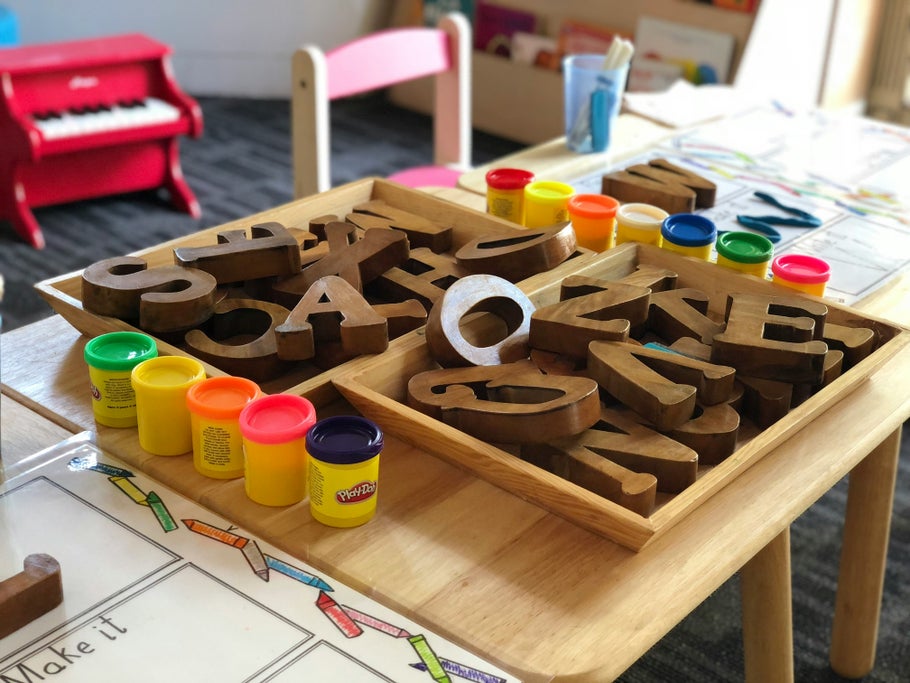How do business agents calculate the asking price of your day nursery?
In this blog post, Sophie Willcox, Director – Childcare & Education at Christie & Co, demystifies asking prices; what they mean and how they are calculated.
Business. Built around You.
Your expert business property advisers


Image: Gautam Arora for Unsplash
What is an asking price?
An asking price is most commonly used by sellers as the way in which to illustrate to a buyer the tone of price that they are seeking to achieve in the event of the sale of their business. With day nurseries, the asking price reflects the ‘value’ that the sellers perceive as being ascribed to the goodwill, fixtures and fittings of the operational business, and, if there is a freehold element, then it will also include the bricks and mortar of the property in its existing and permitted use as defined by planning policy and associated regulatory permits.
Why do we have asking prices?
Agents acting for a seller will utilise their knowledge and expertise and, by having due regard to comparable sales evidence, they will appraise and provide advice regarding a realistic price that the business should be capable of achieving in the event of a sale. This well-considered advice enables the owner to decide whether they want to sell, if is this the right time to sell, and if the price will enable them to achieve their goals.
For buyers, it sets the starting point for negotiations and provides them with a clear indication of price expectations, from which they will be able to determine whether they are able to afford to buy that business. There’s no point in trying to buy something that is wildly out of your reach as that can end up wasting everyone’s time.
How is an asking price calculated?
When it comes to setting an asking price, it is important to be realistic – too low and the vendor won’t get the price they deserve, but too high and it’s likely that the business won’t sell, this can result in disappointment for the seller and then reductions in asking price later down the line. Both can be avoided by having a comprehensive market appraisal conducted by a trusted, knowledgeable, and experienced agent.
Arriving at an asking price depends on various factors including, but not limited to; the financial performance and reputation of the business, location, lease terms, real estate value, demand, market conditions and regulatory inspection gradings. Thankfully, in the day nursery sector, there is a widely accepted methodology underpinning how asking prices and values are determined with the associated methodologies based on the nursery market norms.
Nurseries are appraised via the profits method of valuation, in which a multiplier to fair maintainable profit is applied. When offers are tabled by buyers, it is normal for offers to be made on a cash-free debt-free basis, subject to a normalised level of working capital.
There are many different acronyms used when it comes to selling or acquiring businesses. Fundamental to shaping asking prices is the acronym EBITDA/R which stands for Earnings Before Interest, Taxes, Depreciation, and Amortization (and Rent). EBITDA/R is calculated by working off the business’s latest pre-tax profit, to which line item adjustments of costs, as stated within the profit and loss account, are added back or adjusted. One example of costs which may be adjusted for could be non-recurring personal costs, which would not continue to be incurred in the event of a sale and, as such, under alternative ownership those costs would equate to profit.
Once a fair, maintainable EBITDA/R has been assessed, a multiple is applied to arrive at an asking price. If you are considering a sale, it would worthwhile reviewing your profit and loss account to identify those one-off, non-recurring costs which would enable your agent to accurately calculate the level of EBITDA/R that your business is capable of sustaining. The multiple that is applied to your business’s EBITDA/R is selected by directly referencing a variety of factors. The level of multiples achieved by different types of businesses vary considerably, so it’s best to discuss this with your specialist childcare agent.
When dealing with a business that owns the freehold property, ordinarily the multiple applied to the EBITDA/R figure will encapsulate goodwill, fixtures and fittings, and the bricks and mortar of the freehold asset. It is important to remember that the freehold property will not be ‘valued’ as a residential property as the underlying asset value is appraised on the basis of the property being used as a children’s nursery, a commercial entity, rather than a residential dwelling. Even if it trades from a former converted house, the property would not have the same underlying value so would need to be appraised accordingly.
To find out more about the sales process, or for a confidential chat about your business options, contact Sophie Willcox: sophie.willcox@christie.com / 07736 620 855